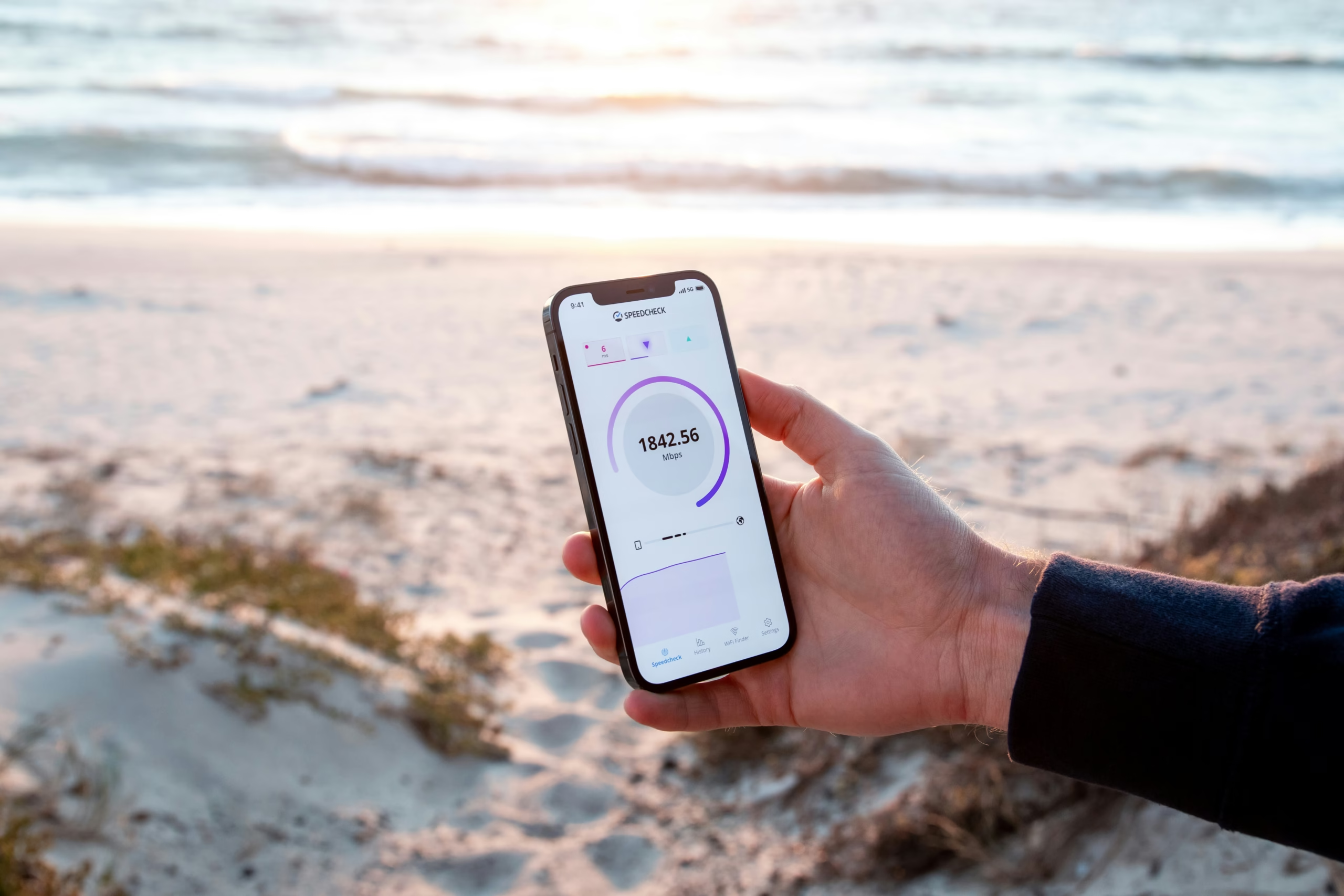From email and video calls to website hosting and CRM, reliable and fast Internet is critical for all modern businesses.

Fortunately, there are a lot of broadband packages available. While this choice means you can find a suitable package no matter the size of your organisation, it also makes choosing the right package a more difficult process.
At Wildanet, our expert team has led countless successful business broadband projects across the South West, helping customers make informed decisions for the future of their internet. In this guide, we’ll look at the most important factors when choosing a business broadband package:
Download and Upload Speeds
Everything you do online requires downloading and uploading data. Opening a simple text-based webpage has minimal download requirements while taking part in video calls has considerable download and upload capacity requirements. If you have multiple people in the office, the figures are multiplied.
So, if there are multiple employees in your business and they all video call or upload large files, choose higher broadband speeds. If you work alone and only use the Internet for browsing and occasional Microsoft file downloads, it’s unlikely you’ll need the highest level of speeds. If you’re unsure on which speed you’ll need, get in touch with our team of experts today.
Reliability
Whatever it is you use the Internet for, you will need reliability. Reliability not only means minimal downtime, but it also means that you get close to the advertised speeds consistently, not just during off-peak times.
While reliability is important for all businesses, if you host your own website or email server, or you use your broadband for VOIP and video conferencing communications, you need even greater uptime.
Backup Connections
One way to help reduce downtime is with backup connections. Some providers offer a secondary router that connects to a separate network. If your main connection does go down, the backup connection picks up the slack. This redundancy can help prevent work loss and communication failure.
Static vs Dynamic IP Addresses
Whenever a device connects to the Internet it is assigned an IP address. Dynamic addresses are surrendered when the device logs off so that a different device can use it, and a new IP address is assigned when the device next logs on.
Dynamic addresses were introduced to help counteract the dwindling number of available IPv4 addresses (link to What is The Difference Between IPv6 And IPv4). They are also considered more secure and cost-effective. But, if a business hosts its own website or email server, it will require static IP addresses.
Flexible Business Broadband Package Contracts
Cheaper is not necessarily better when it comes to business broadband, but that doesn’t mean you should pay over the odds. And you should avoid being tied into lengthy, expensive contracts.
Businesses evolve, and if yours expands to include more people or take on additional work with different requirements, you may need to increase factors like download speeds. Having the flexibility to upgrade or downgrade can be very beneficial to a business. There are also potential tax relief opportunities for SMBs when investing in better equipment, including Annual Investment Allowance (AIA).
Additional Products And Services
Most business broadband packages come with some hardware. Specifically, you will receive a router that the computers and other devices on the premises connect to. But you can also find packages that include additional hardware and infrastructure, like phone lines and phones.
Include VoIP, WiFi extenders, and other features, if required, but avoid paying extra for services you don’t need.
Test Your Business Broadband Health For Free
Worried you are paying too much or that your equipment is out of date? Take our Free Business Broadband Health Check and our expert team can quickly tell you where you could save. Set yourself apart from competitors and future-proof your business with fast, reliable broadband from Wildanet.
Find Your Ideal Business Broadband Package With Wildanet
Businesses of all sizes, from SMEs to Enterprises, need reliable Internet access that meets their needs. Consider the size of your business, and your typical Internet requirements, and ensure that you choose a package that can be adapted to your needs in the future.
At Wildanet, we offer a variety of broadband packages suitable for businesses run from spare rooms to broadband for Enterprises, including additional products and services like WiFi SuperPods and Phoneline+.
Get in touch with our expert team or use our free Business Broadband Health Check today.




